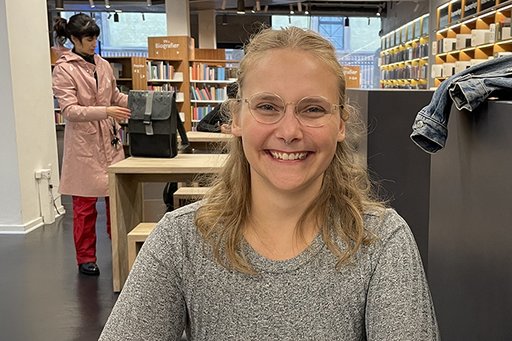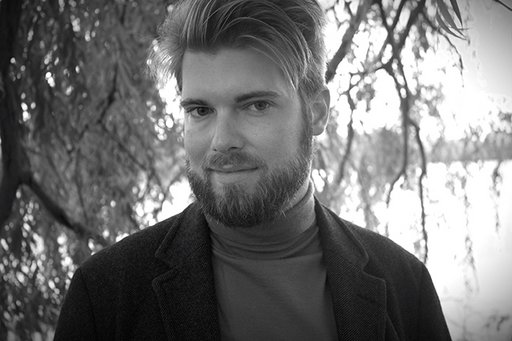Meet two PhD students in different PhD committee

Thea Quistgaard is a PhD student at the Department of Environmental Science
What made you stand for election to the PhD committee?
I'm a student at the Department of Environmental Science, which is located in Risø north of Roskilde, far away from the rest of AU. This distance means it can be difficult to keep up with changes at faculty and university level - and generally feel like an integrated part of the university. That's why it's important that we as a department are represented on TECH's PhD committee, so that my fellow students and I are also heard further up the system - both at the faculty, but also right up to the top of the university. At the same time, I'm glad that there is a democratic space where it’s possible to share your opinions and ideas.
What have you been particularly interested in during your time on the PhD committee?
Personally, I’ve focused my energy on two things in particular: (1) a sense of community and solidarity between students across the departments at the faculty and (2) the PhD students’ mental well-being and rights. A third issue I work on is making the university more sustainable. This is mostly something I do at department level: for example, I set up a sustainability committee, hired a student assistant to work on emissions inventories of our employees’ travel, and performed the first analysis of a completely local (AU Risø Campus) emission inventory. I hope that my time serving on the faculty’s PhD committee can help bring some of these initiatives to a greater part of the university.
What will you take with you from your time on the PhD committee?
Serving on the PhD committee has given me confidence in relation to the democratic process within the university. We students have valuable input on our programmes and our workplace – and I’m very grateful for how much the university has listened to us and our wishes, frustrations and ideas.
At the same time, it’s given me a priceless network across the faculty that I would never have had the opportunity to develop otherwise, given that my department is so far away from the rest of AU. It’s been amazing to experience how committed we all are to each other, the faculty, the students and our future.
In your opinion, what are the main arguments for standing for election to the PhD committee?
A lot of people are dissatisfied with one thing or another. But if you’re serious about it, you have to do something about it yourself. On the PhD committee, you’re taken seriously and listened to, as the students’ representative. This is a space where you can express your frustrations – and find a solution together. At the same time, it also gives you an overall and in-depth insight into the inner workings of the university – and with that insight and understanding, you can help make the programme, the job and life a little easier for yourself and your fellow students/colleagues.
Why is it important to get involved and vote in the university elections?
In practical terms, of course, this is the most important way we as as students and employees can be heard. Though you might think that universities are deeply rooted organisms where things must be done a particular way because...that’s how they’ve always been done. That’s far from the case! The only way things can be changed is if we say out loud what we’re dissatisfied with, pleased and about and what visions we have for the future. And the university elections are one of the best places to make your voice heard!

Niclas Nørby Jochumsen Hundahl is a PhD student at the School of Communication and Culture — Musicology
What made you stand for election to the PhD committee?
As the PhD students’ representative on the Arts PhD committee, I get insight into everything leading up to important decisions, and that’s exciting. The opportunity to take part in these interesting discussions is one of the main reasons I’ve always gotten involved in student politics. So when the opportunity presented itself to continue my involvement at postgraduate level (I previously served on my degree programme committee, board of studies and academic council, all at UCPH), it seemed like the perfect chance to expand my knowledge and my network at the same time. At the same time, I’m also the kind of person who often thinks that there must be a smarter solution for X and Y - and the PhD committee is precisely a forum where your ideas and perspectives are received with respect and interest.
What have you been particularly interested in during your time on the PhD committee?
I’ve only served half my term so far, so I haven’t been able to pursue a specific agenda systematically. But one of the issues that’s been at the top of my agenda is drawing attention to the precarious position of early-career researchers in the university’s power structure – and by extension, how we can bring about what I see as necessary change in an ‘old’ institution such as Aarhus University.
What will you take with you from your time on the PhD committee?
I’ve learned that change is difficult and takes time. And that the university is comprised of many branches, at academic, managerial and administrative level, that often have conflicting goals. But I do what I can to initiate the necessary dialogue that can serve as a launching pad for a change process, and I’m learning a lot along the way.
In your opinion, what are the main arguments for standing for election to the PhD committee?
The PhD committee is a good place to exercise concrete influence if you think there are general issues with the design of PhD programmes at Arts You can influence how the faculty tackles these issues and the solutions that are chosen. And at the same time, you also meet other PhD students and full-time colleagues who are also working to create the best possible framework for PhD programmes at the faculty.
Why is it important to get involved and vote in the university elections?
Our university democracy is pretty unique, and if we all voted in these elections, the university would probably look a bit different.